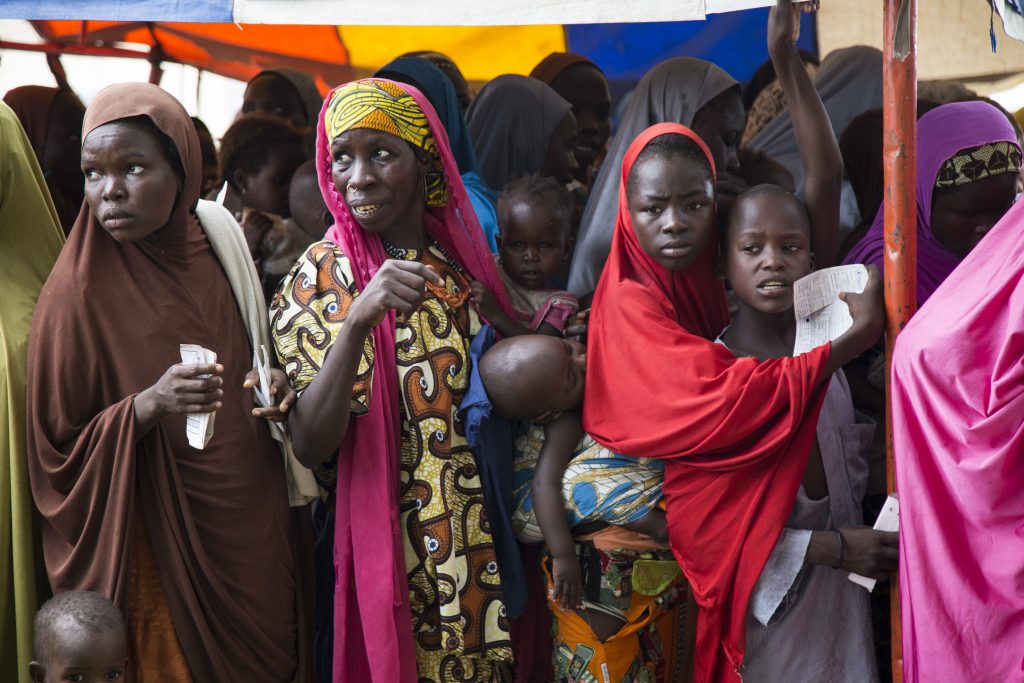Every act of gender-based violence is preventable, and International Medical Corps is committed to supporting global, national and community efforts to combat it. In emergencies, when risks of GBV increase, all humanitarian actors are obliged by the Inter-Agency Standing Committee to take actions to prevent GBV. Unfortunately, this responsibility is too often overlooked in the face of so many other needs, and attention to GBV is not prioritized. We work with partners through the GBV Area of Responsibility (AoR) and the Call to Action initiative to increase action toward prevention of GBV and to increase accountability to women and girls in emergencies.
Our Response
In emergency settings, we identify local partners, staff and volunteers committed to ending violence against women and girls. We value local knowledge, and work with community groups to identify and mitigate specific risk factors for GBV in different environments. Using the Inter-Agency Standing Committee (IASC) Guidelines for Integrating Gender-Based Violence Interventions in Humanitarian Action, we train a range of other actors and service providers—including those organizing health, education, WASH, nutrition and shelter services—to design and implement services in a manner that reduces risks of GBV.
To combat social norms of discrimination that constitute root causes of GBV, we engage whole communities—including men and boys—to promote women’s and girls’ equality, and foster positive, non-violent behaviors. Cycles of violence can continue across generations, where children who grow up in violent homes are more likely to perpetrate, and be affected by, violence as adults. Increasingly, evidence demonstrates that even short-term interventions can help people change the attitudes and behaviors that perpetuate GBV.
Examples of how we combat GBV include the following:
PAKISTAN, in Afghan refugee villages.
We face considerable challenges promoting women’s equality in refugee villages, where a strong cultural tradition of strict patriarchal authority dictates that male heads of household should make all important decisions, including limits on women’s mobility. Our program has organized sex-separated groups of community volunteers into “gender support groups” (GSGs), responsible for holding discussions with men or women about the consequences of GBV, including the harmful effects of some traditional practices. The GSGs also engage with community residents about the benefits of girls’ education and women’s economic and social participation.
ETHIOPIA, in South Sudanese refugee camps.
Though early and forced marriage is common in South Sudan, the practice has increased among those displaced by conflict. Parents struggling to support and protect their families may agree to these marriages in an effort to better conditions for their daughters or their other children. In refugee camps in Ethiopia, we have worked with South Sudanese communities to tackle this problem. We lead the fight against this harmful practice by engaging teachers, community leaders and parents in discussions on the health, psychosocial and economic consequences of early and forced marriage. We also have worked to increase girls’ access to education, life-skills training and mentorship opportunities. In one year, for example, we provided life-skills training for 100 out-of-school adolescent girls at risk of early or forced marriage.
Engaging Community Leaders
Community leaders, including traditional and religious leaders, carry great responsibility and influence over communities—particularly in emergency settings, when formal systems break down or are more difficult to access. Leaders are custodians of social norms and help to set expectations and practices relating to protection and gender relations. They also are often involved in addressing incidents of GBV—including domestic violence, early and forced marriage—and sexual violence perpetrated within communities. Because of these multiple responsibilities and areas of influence, and with the support of the US Bureau for Humanitarian Assistance (BHA), we have developed a Community Leaders Toolkit to help GBV programs effectively engage community leaders in humanitarian settings. The toolkit has been piloted in Iraq, Cameroon and Mali, and will be released in English, French and Arabic soon.
